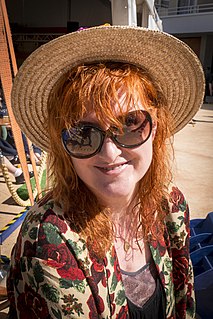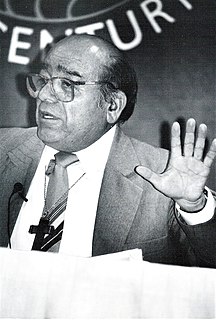A Quote by Meghan Daum
The irony of the media and people in big cities is that they're charged with defining the entire culture, when in reality they don't even live in that culture. They live in such a rarified, tiny world.
Related Quotes
The culture of irony is the culture of postmodernism, which I would furiously want to denounce. We have to act ethically and politically. Irony is a defensive position, against reality. It always knows what to think about reality. The idea of commitment and engagement is central to me, which is not ironic.
I was on television a couple of years ago and the reporter asked me, "How does it feel being on mainstream media? It's not often poets get on mainstream media." I said, "Well I think you're the dominant media, the dominant culture, but you're not the mainstream media. The mainstream media is still the high culture of intellectuals: writers, readers, editors, librarians, professors, artists, art critics, poets, novelists, and people who think. They are the mainstream culture, even though you may be the dominant culture."
We don’t just live in a celebrity take-down culture; we live in a take-down culture. People will find anything about you and twist it to where it’s weird or wrong or annoying or strange or bad. You have to live your life not only in spite of people who don’t understand you - you have to have more fun than they do.
The indigenous peoples understand that they have to recover their cultural identity, or to live it if they have already recovered it. They also understand that this is not a favor or a concession, but simply their natural right to be recognized as belonging to a culture that is distinct from the Western culture, a culture in which they have to live their own faith.
Since the 1960s, mainstream media has searched out and co-opted the most authentic things it could find in youth culture, whether that was psychedelic culture, anti-war culture, blue jeans culture. Eventually heavy metal culture, rap culture, electronica - they'll look for it and then market it back to kids at the mall.
For the most part, French cities are much better preserved and looked after than British cities, because the bourgeoisie, the people who run the cities, have always lived centrally, which has only recently begun to happen in big cities in England. Traditionally in England, people who had any money would live out in the suburbs. Now, increasingly, people with money live in the cities, but this has changed only in the last 20 or so years.



































